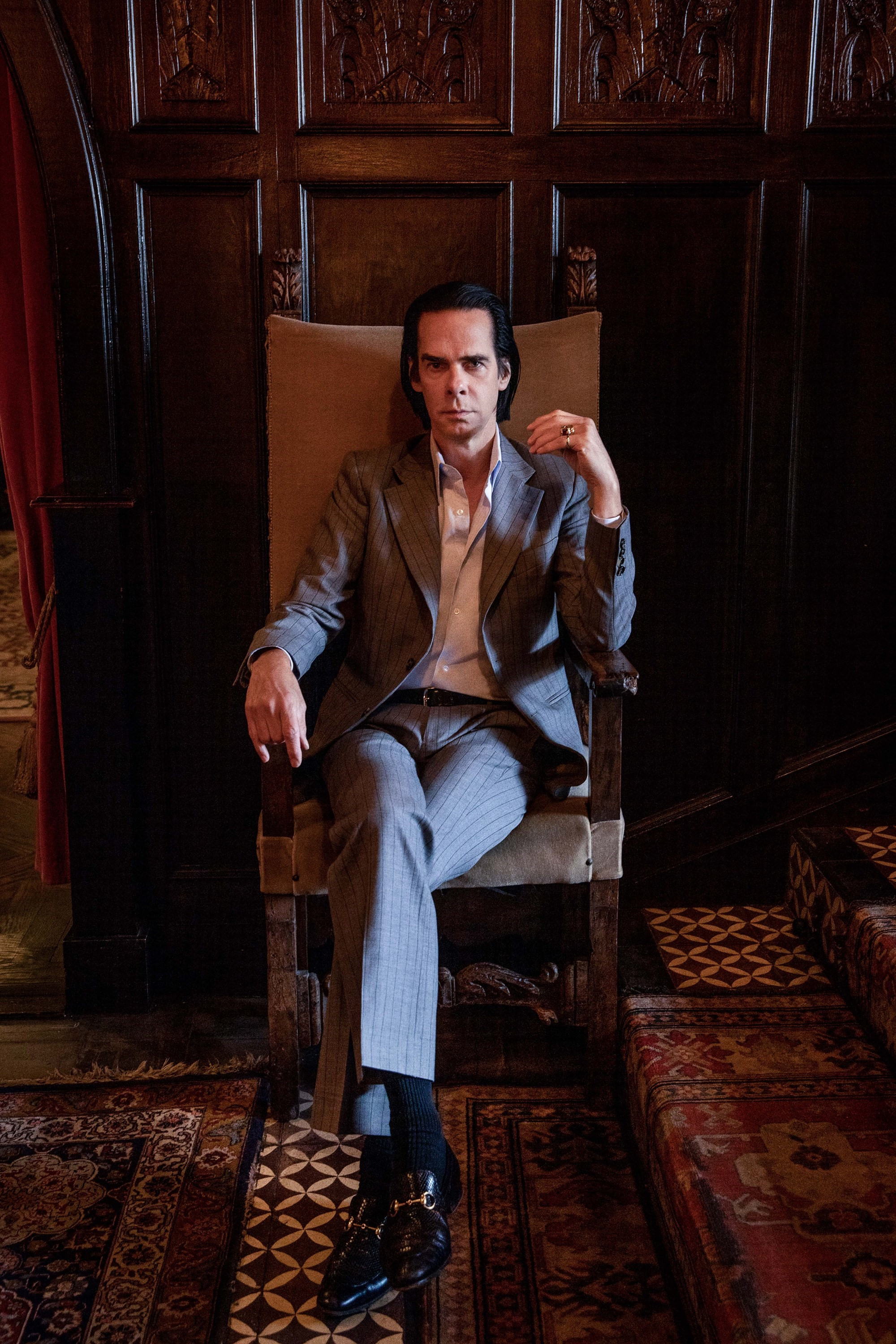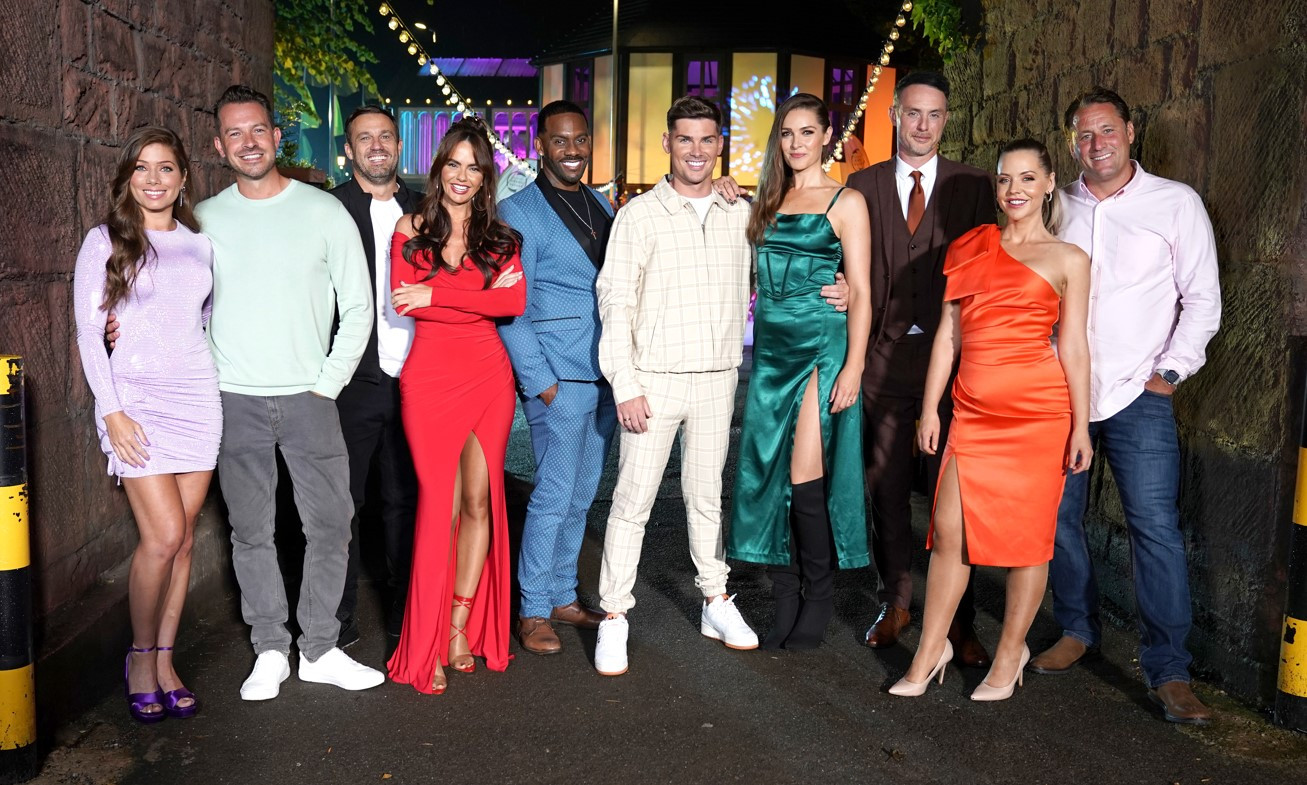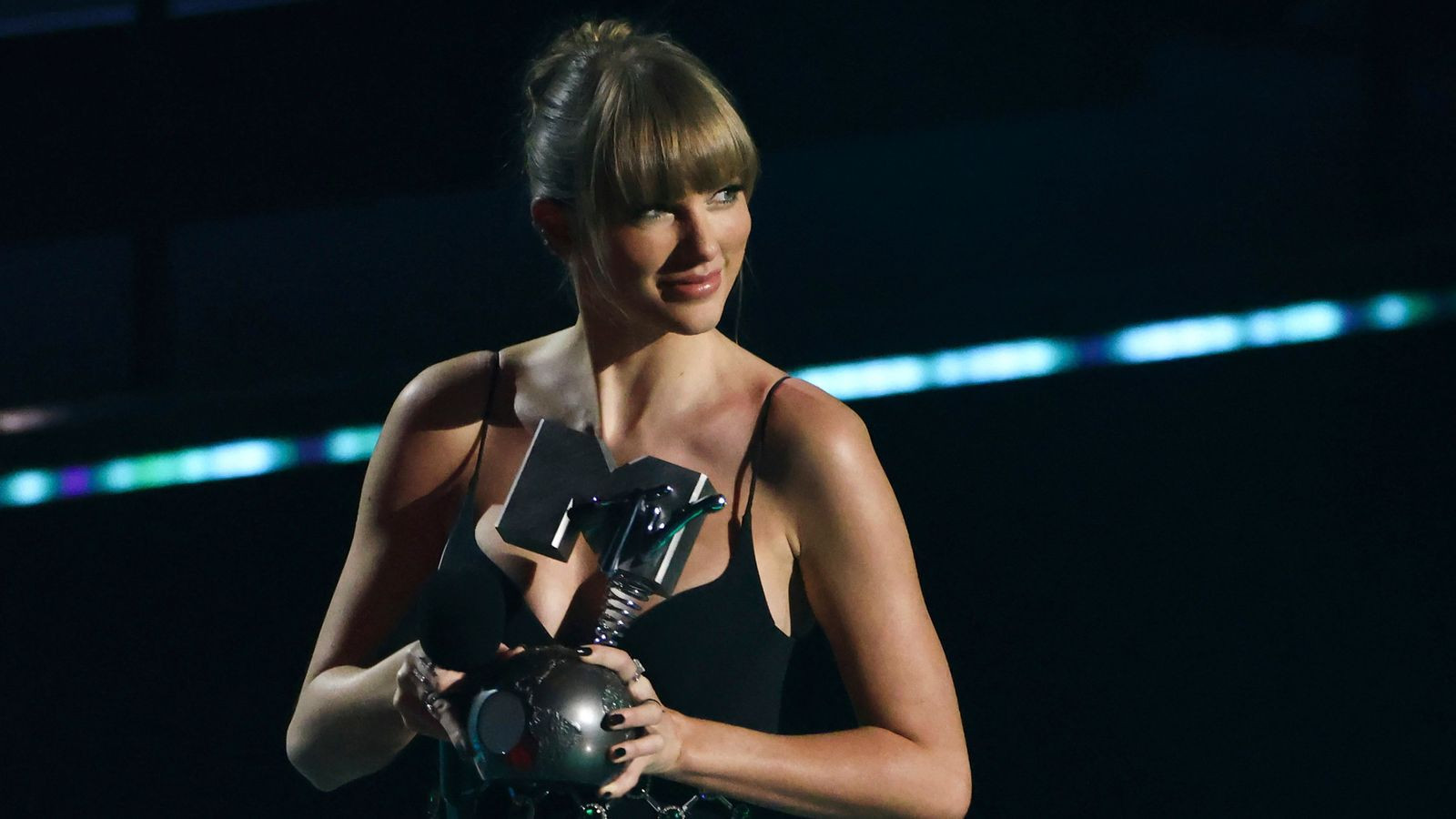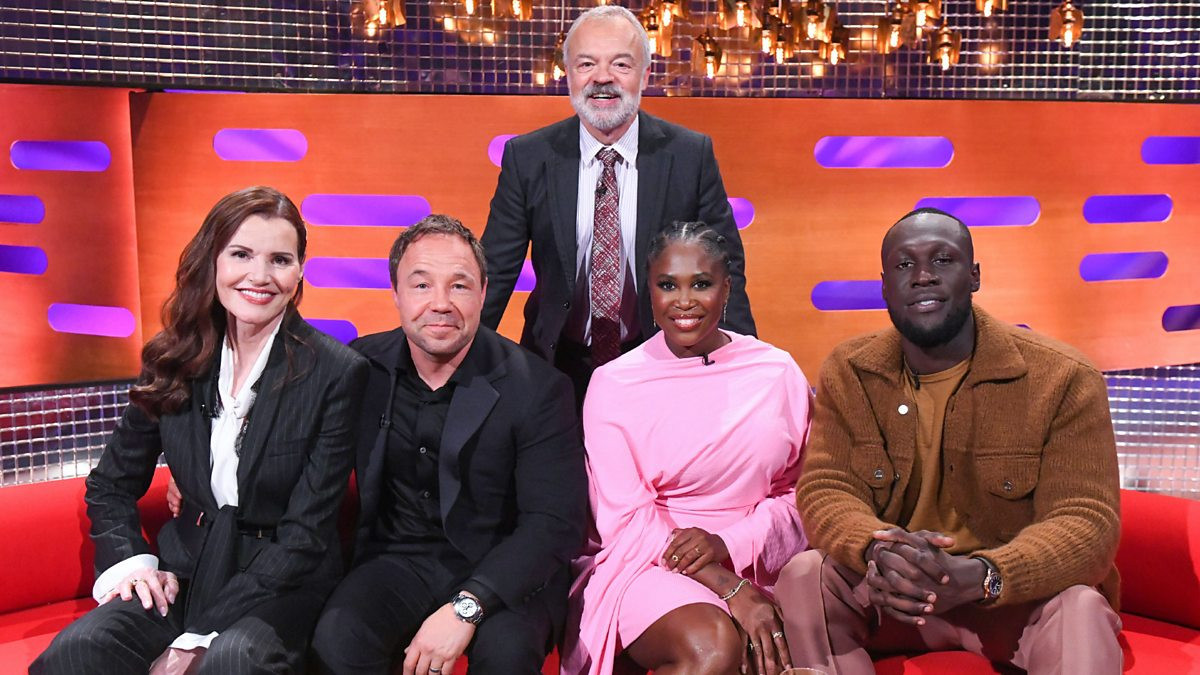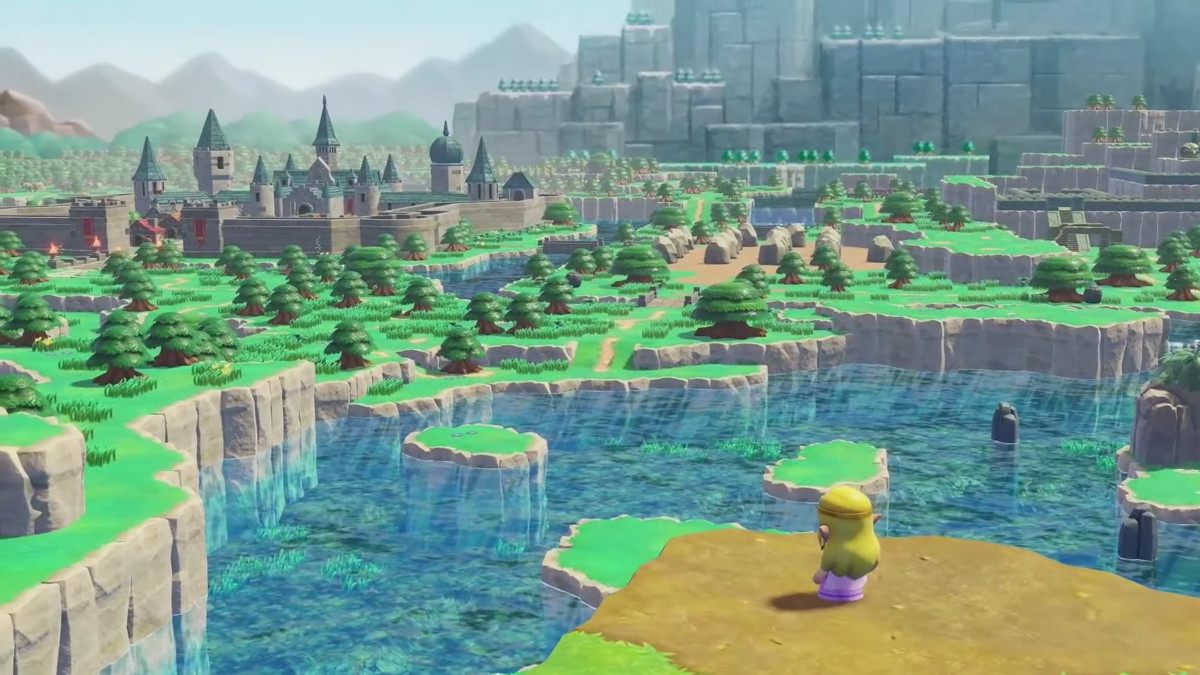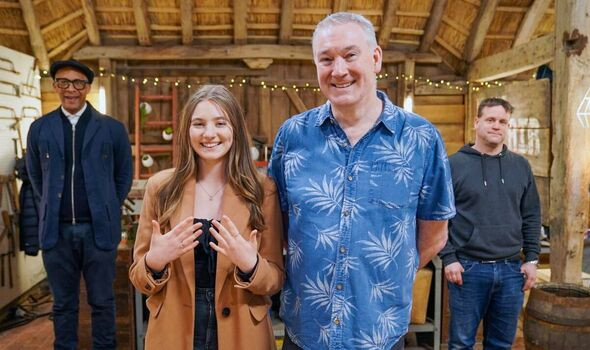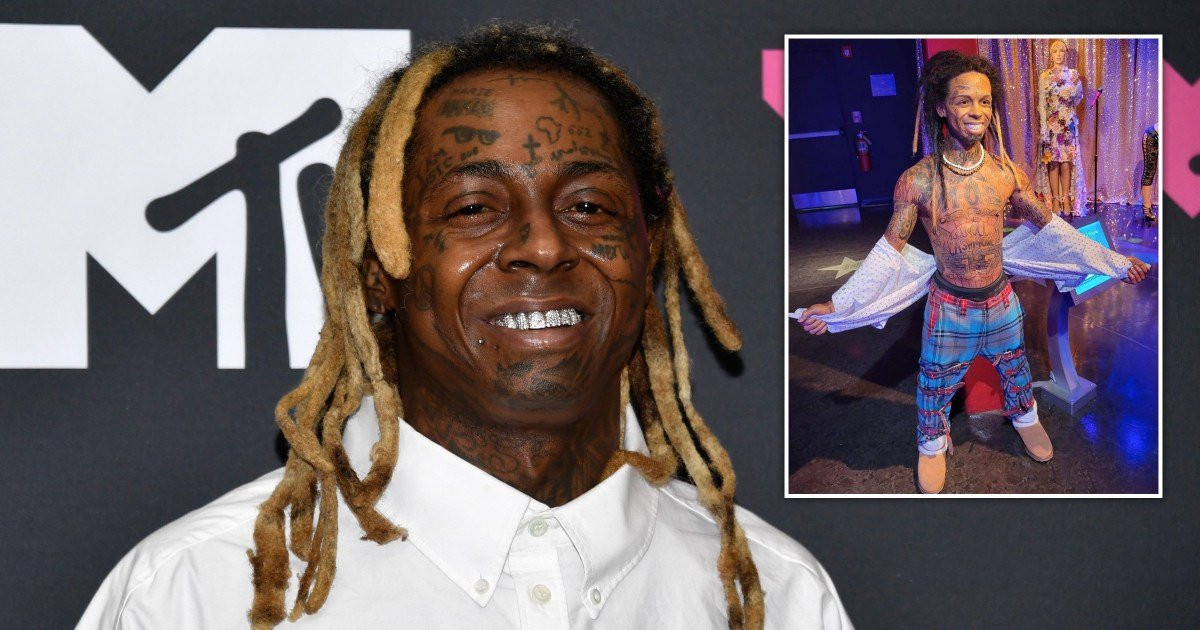There is no one else on planet Earth quite like Nick Cave. His career spans several incarnations, from frontman of The Birthday Party, the so-called most violent band in the world, to becoming a modern master of the romantic piano ballad, gifted with an unmistakable baritone. Recent chapters of his story have seen Cave re-emerge from the depths of grief and offer up his personal experience of bereavement as a way to help others find community and consolation in even the most difficult of circumstances.
For those who don’t know, Cave’s son Arthur died in 2015. The 15-year-old fell from a cliff, into the underpass of Ovingdean Gap in Brighton, near the Cave family home, and suffered a fatal brain injury. Seven years later, Cave’s 31-year-old son, Jethro Lazenby, died in Melbourne.
Love, loss, and death already featured prominently in Cave’s work over the years. Lest we forget, his biggest chart hit was a murder ballad with Kylie Minogue, Where the Wild Roses Grow. But since 2018 Cave has been offering words of comfort to fans seeking support via a website called The Red Hand Files, an oasis of reflection amid the internet’s entrenched negativity. Here you can quite literally ask Nick Cave anything you like.
A Journey Through Grief
A recent question published on the forum comes courtesy of a fan from Sweden called Karin, who asks Cave: ‘I’m wondering if you have any thoughts about loneliness. I am middle-aged and richly blessed in life, with children, a husband and a good job that I enjoy. I have friends and interests, but still struggle with a sense of loneliness. It is a melancholy that varies in darkness. I don’t think anyone notices because I’m positive and often cheerful.”
Cave responds: “Karin, I don’t have answers beyond my own experiences, which have taught me that loneliness is not simply down to our circumstances or whether others love us. Philosopher, neuroscientist and psychiatrist Iain McGilchrist says we require three things to attain a meaningful life. The first is feeling part of a wider community – family, friends, and society in general. Second is an understanding of nature and a connection to the natural order of things, which McGilchrist feels we have largely lost. Finally, we need to form a relationship with the sacred or divine – this can be found in art, music, poetry and religion, where we acknowledge the ineffable and all-encompassing force that holds the world together.”
Cave concludes his answer, which is far longer than what is quoted here, by writing: “I hope these words are of some help.”
In the flesh, the suited and booted 6ft 2in singer still cuts a dash, looking much younger than a man turning 67 in September. Over the course of our conversation in a hotel off King’s Road in Chelsea, London, Cave waxes lyrical about the joy of discovering Van Morrison and Bob Dylan in his teens, adding that he recently read about the influence of music on the brain being at its most potent between the ages of 16 and 23.
However, neither Dylan, nor Van the Man, nor Leonard Cohen, nor any of Cave’s beloved pantheon of heroes, ever did anything like The Red Hand Files. On the contrary, it’s hard to even imagine the likes of Dylan or Morrison engaging with the world with such open-hearted candour.
An Unconventional Approach
In 2022 Cave also published Faith, Hope and Carnage, a book-length conversation piece with journalist and author Seán O’Hagan, focusing on life, death, grief, faith and creativity. Again, the project didn’t conform to any of the usual expectations or notions of how a modern musician or celebrity conducts themselves.
There are some precedents for all this to be found in his early life. Cave’s father, Colin, died in a car crash, when Nick was still an unruly teenager. He subsequently became much more serious about art, writing and music. In an essay called The Secret Life of the Love Song, which Cave penned for the Vienna Poetry Festival in 1998 and delivered in Dublin’s Gaiety Theatre in 1999, he said: “A great gaping hole was blasted out of my world by the unexpected death of my father when I was 19 years old. The way I learned to fill this hole, this void, was to write. My father taught me this as if to prepare me for his own passing.”
In Faith, Hope and Carnage, Cave explores what he calls the “obliteration” of grief. “I didn’t set out to do any of this,” he says now. “For example, there was no way I was going to ring up Seán O’Hagan and ask him to interview me about the death of my son [Arthur]. What came out of our conversations is extraordinarily beautiful. I can’t sit down and listen to one of my own records, but I can open that book anywhere and read it with great pleasure.”
Cave is talking to The Irish Times ahead of the release of his 18th studio album with The Bad Seeds. Wild God is his first record with the band since his grief-stricken ethereal masterpiece Ghosteen in 2019. But the conversation is far expansive than your customary interview with a musician. Wild God sees the full return of The Bad Seeds after the relative minimalism of Cave’s collaborations with Warren Ellis. Colin Greenwood from Radiohead features as a guest musician on bass.
“The band had been put out to pasture for a couple of albums and they came roaring back,” says Cave. “When The Bad Seeds came back this time they returned with an enormous, joyful and defiant energy. Whenever I go into the studio with the band, it’s always a thing of joy.”
Cave has done much fewer interviews in recent years, and none whatsoever in the immediate wake of Arthur’s death, or while promoting his albums Skeleton Tree (2016), Ghosteen (2019), or Carnage (2021) with Warren Ellis. With The Red Hand Files, he essentially threw a form of the interview process wide open to all, and supplemented this with a public conversation series called So, What Do You Want to Know?, one of which was presented at the Abbey Theatre in 2018 and promoted by the late John Reynolds.
Finding Meaning in Loss
We talk about how reading Faith, Hope and Carnage offered me comfort after losing my brother, Séamus, in a mountain accident in 2019. “In nearly every interview I do the interviewer brings up a personal situation that has happened to them,” says Cave. “To me that’s a great privilege. I don’t have any answer to these things, but I do feel connected to humanity. I think humanity is essentially broken.”
Cave’s navigation through grief also includes losing his mother, Dawn, during Covid, meaning he couldn’t attend her funeral in Australia, which his actor son Earl, Arthur’s twin brother, called a “Zoomeral”.
A track on Wild God entitled O Wow O Wow (How Beautiful She Is) is a tribute to the late musician Anita Lane, who was Cave’s girlfriend and fellow founding member of The Bad Seeds more than 40 years ago.
“Anita was a force of nature,” says Cave. “There was this Melbourne scene of young experimental punk musicians, shall we say. It was quite male in a way and had a whole lot of dark, drug-addicted energy. Anita was just this weird and wonderful bright flame in the middle who was always laughing. She was full of ideas and that’s what I was trying to capture in that song. There was an innocence to Anita. She sounds like a child. I remember when we lived together our bank rang up. Anita would talk to anything and anyone and I could hear this conversation, At the end of it, someone from the bank said, ‘Look, when your mummy gets home, tell her to call me’.”
How did Cave get through it all? “I’ve read a lot of grief literature, especially in the early days, but it never really worked for me,” he says. “I think the seven stages of grief was debunked a long time ago. Even acceptance is tricky. You are trying to get back to what you used to be, but I consider that to be a waste of time. You are fundamentally changed by a lot of the big things that happen to you. For example, with a divorce you don’t suddenly go back to how you were before you got married. You are deeply affected by it and these things deeply affect you and fundamentally change you.”
Another recent loss is Shane MacGowan. Cave performed A Rainy Night in Soho at his funeral in Nenagh in early December, accompanied by Colm Mac Con Iomaire on violin and a cast of esteemed Irish musicians. “I went to bed the night before Shane’s funeral feeling quite sick,” he says. “I think I had Covid. No, I had the flu. The following morning, I felt fing hideous. I was ringing everyone saying I wouldn’t be able to make it because I was ill. At some point I said, ‘Ah, f it’, and just drove to the airport and finally managed to get a plane.”
Cave’s performance, which subsequently went viral with more than 1.4 million views, was not rehearsed in any way. “The plane landed, and a car dashed us to the church and arrived halfway through the service,” Cave continues. “I walked in, and someone just shooed me on to the stage. I thought I was going to play it on my own, but there was a band already there. As I was walking past them to the piano, they started asking me what key A Rainy Night in Soho was in. I told them not to play anything. Fortunately, they didn’t listen to me. They were great musicians and just played along so beautifully and created this gorgeous sound. It was an extremely moving experience.”
MacGowan and Cave first met in London in the 1980s. “Shane and I became very close friends after a disastrous first meeting at an NME magazine journalism summit with the two of us and Mark E Smith,” he says, referring to the legendary frontman of The Fall, who died in 2018. The interview was chaired by his future friend and co-author, Seán O’Hagan, for NME. “It was an absolute f***ing disaster,” says Cave, laughing. “Shane had dropped an enormous amount of acid. Mark E Smith was being very nasty and out of his mind on amphetamines. I was literally one day out of rehab, so it was a horrible situation, but I got to meet two of my heroes. To my mind, they were two of the greatest songwriters of our generation and I remained friends with both Shane and Mark.”
He calls Shane a unique and special friend. “Shane and I would collaborate very occasionally, but we were essentially friends,” he says. “We’d just go out and drink and take drugs and go to parties like friends do. We had a very real kind of relationship. In many ways, I don’t have those sorts of relationships because most of how I communicate with other people is through working with them. The very last thing me and Shane would do together is work.”
“We had a very close relationship, but I saw him less and less as he got sick. I still talk to Victoria a lot, but Shane became more withdrawn from things in his final days. It was very sad to see him go. I think Sinéad O’Connor described him as an angel. If angels exist, then Shane is one.”
Cave’s wife, the former model and fashion designer Susie Cave (nee Bick), also poured her grief for Arthur into creativity through her acclaimed brand, The Vampire’s Wife, which ceased trading earlier this year.
“Susie’s is very similar to my experience,” says Nick. “Susie just put everything into making these dresses. To me and many people those dresses felt like an extension of Susie’s feelings of loss. The dresses themselves looked ghostlike. She was literally making something from her grief. Literally making something from the very fabric of her grief. I think people really responded to that.”
“Like anything in the fashion industry, it was f***ing nonstop, and she was working continuously. As soon as you finish one collection you must start another one. She’d been doing it for 10 years, and then the company collapsed. Susie is now free. As much as she is sad for the company and the people who worked in it, she is free. It’s actually great to see.”
I tell him my wife, Ali, adored the brand. “We are very pleased Ali feels that way, but Susie is quite happy,” says Cave. “That’s what Susie always wanted to do, make clothes that everyone could buy, but she couldn’t make the dresses she wanted to make and get the prices down, which became a big difficulty. She wouldn’t compromise on the details on those dresses, and she refused for it to be done cheaply. She did a collection with H&M where they literally made millions of the same thing so they could sell them very cheaply. I think Susie was always secretly at her happiest when she’d walk through Brighton and see some young girl wearing her silver-laced cape.”
In Faith, Love, and Carnage, Cave says he and Susie carried each other through their grief. “We survived because we stayed together,” he says. “It is as simple as that. Grief comes and goes, but it no longer scares us.”
Cave’s car is waiting to whisk him to the BBC, so our lengthy conversation must wind down. “Weirdly, The Red Hand Files has positioned itself in the centre of everything,” he says in conclusion. “It is what everything else revolves around, bizarrely. Even the records are informed by what is going on with the Red Hand Files, which have essentially become a way of life in a strange kind of way. I only know that my life is much richer and more explicitly meaningful than it was before my children died. I see the world in a different way. I don’t get as irritated by life as I used to. Everything used to piss me off. Now, I’m more affected and moved by the sheer beauty of the world.”
Wild God is released by Mute Records on August 30th. Nick Cave & The Bad Seeds play 3Arena, Dublin on November 12th and 13th
© 2024 The Irish Times DAC UK Edition
Challenge yourself with today’s puzzles.
Crossword
Polygon
Sudoku
Decades ago Nick Cave’s mother, Dawn, gave the singer some advice. “Head high and f*** ’em all,” she said. Recently, though, Cave’s head hung low, for reasons that will be familiar. In 2015 his son Arthur died aged 15, and two years ago another son, Jethro, 31, died as well. Cave also lost his friends Anita Lane and Shane MacGowan, and Dawn died four years ago, aged 93. That is a lot of lost love, so with his new music Cave decided it was time to live.
“I was going to call the album Joy,” he says of his latest record with his band, the Bad Seeds, which ended up with the title Wild God. “Because, for me, joy is not happiness as such, but those heartfelt explosions that lift us out of the baseline for humans, which is loss. Those moments help us understand the world meaningfully and show our beautiful capacity, as human beings, to rise beyond various losses.”
We have met in London, in a quaint hotel close to Victoria — the terminus for trains from Brighton, where Cave lives with his wife, Susie. The 66-year-old Australian, based in Britain for most of the past 40 years, is a serene, wickedly funny and very well-tailored presence — he has an aura of calm, with his black suit and slick hair pushed away from his slender face. Cave has been a rock star since 1977, when he started performing with the Birthday Party, but this decade he has pivoted into part-musician and part-agony uncle through his website The Red Hand Files, where he answers letters from those in need, spanning everything from questions about love and loss to careers and song recommendations. He used to be thought of as irascible — now he is just relatable.
“Even though these awful things have happened,” he says, “I firmly believe that the world, in itself, tilts toward beauty and goodness. And if you see the world that way, it changes how you relate to people who die. It’s not just devastating…” He pauses. “You get practised, weirdly enough.” He chuckles a little. “Which is a terrible thing to say, but there is cruel truth to that.”
I mention his mother’s advice — to keep his head high. Is this talk of beauty as much for him as for those who might be looking down? “That is fundamental to the way I lead my life,” Cave states, firmly. “I’m very uncertain about what happens after you die, but it concerned me how the spirit of Arthur would feel if he saw the misery his mother and father were going through — because of his passing. It was the anniversary of his death yesterday…”
We met in mid-July. His deep voice cracks, like he does not want to say what he is about to out loud. “And one thing we can say to him now is that things are OK,” he says. “I say that cautiously. There’s no closure. Things haven’t settled back to the place they were, before Arthur or Jethro died. However, we are happy.”
The Music of Joy
Wild God captures this tentative glee superbly. Sometimes the album is the sonic equivalent of fireworks — music exploding out of speakers. If the previous couple of records Cave made, with the orchestral guru Warren Ellis, felt like a glimpse of something he had to deal with in private, Wild God is a gospel rock riot, the Bad Seeds at their most raucous in 20 years. There is sadness, and some tough listens, but so much prettiness. Long Dark Night is the loveliest Cave song since Into Your Arms, in 1997.
He started to pen the lyrics on New Year’s Day in 2023. “Misery,” is how he describes the writing, whereas making music is “great for the soul”. Even Carnage and Ghosteen, his albums written in the wake of Arthur? “Yes,” he says. “We were in an absolute state for Ghosteen, but it was so full of meaning.” He then mentions Skeleton Tree, which he was recording when Arthur died. “That is the only album that made matters worse — my mental health was made worse, because I did it very soon after my son died, and I shouldn’t have done.”
• Nick Cave: how the star has helped others through his own grief
Cave is not someone who fans get into casually — his songs of anguish and loss, love and sex, God and murder are the closest music gets to the novels of Cormac McCarthy or the art of Francisco Goya. Watching him live is an exultation, the audience with arms aloft. “I’m fully aware what music means to people,” he says, on whether the adulation feels overwhelming. “But that energy from the audience has been really different in the last eight years.” I ask why, but know the answer. “Because my son died.”
“Many people felt invested in that,” he continues. “Not just out of sympathy. It was an indicator of the perilous nature of us all.” At which point I blurt out that when I had awful news of my own, Cave’s music and website were of great solace. He has this effect — it feels like he can help, the Claire Rayner of rock. He looks deeply concerned when I tell him what happened, asking questions.
Finding Connection in the Brokenness
“These things isolate you,” he says. “You feel no one has experienced anything like this pain. But, quickly, you realise that, actually, it’s the binding agent to humanity, because everyone is going through these things, or they will. This was absolutely life-changing for me. I found myself, for the first time, connected to a world I had always prided myself in living on the periphery of.” For years Cave was a heroin addict. “When Arthur died I realised I was part of a greater thing.”
His generosity to the world, his optimism, keeps coming. He reads about 50 letters a day for The Red Hand Files — “People losing their minds” — and says that has taught him greater compassion. Occasionally, when he is tired, he thinks, “F***’s sake! Get over it!” But he thinks that less than he once did. “There is just a better end to my nature now,” he says, smiling.
I don’t think he was ever not empathetic — but is his empathy now stronger? “I don’t think empathy is the right word. I actually think that if there is some scale, my empathetic nature is not that high. I know my wife is empathetic. If she sees a puppy dog with a sore paw? She’s in tears. I’m not naturally that way. But I do now have a clear understanding of how we should behave as a community, in order to improve the way things are.”
“The world just feels demoralised now,” he adds sadly, referring to the propagation of ideas like: “‘What is the point in getting married? Having children?’” He continues: “Perhaps it is because I’m old but this is fundamental, existential bitterness — I find that worrying. So I present humans as being of enormous value and potential. It’s a narrative I don’t hear much any more but, in my view, all around us, the world is beautiful and it is worth opening our eyes to look at how beautiful it continues to be — not just how debased we feel it has become.”
I mention God — the only subject he has written about as much as Susie. “For a journalist to ask about religion is new,” Cave says, grinning. “I remember an NME writer saying, ‘My editor said, ‘Don’t get him going on God!’ But a move towards religion has intellectual energy again.” Why does he think that is? “People need meaning,” Cave says. “And the secular world didn’t come up with the goods.”
“This has nothing to do with whether God exists or Jesus was resurrected,” he continues. “But people are edging back towards established institutions where there is a sense of meaning.” A few years ago Cave said his own relationship with God was “a work in progress” — has said progress shifted? “It has. I don’t call myself a Christian because that has a certitude I don’t have, but, yes, my progress is more towards God, let’s say, rather than away. Still the wisest thing a person can admit is that they don’t know anything. If there was more of that going on, where people weren’t so certain, the world would be a more tolerable place.”
A World of Beauty
Which leads us to Israel. On The Red Hand Files Cave tends to leave letters about politics alone. “You have this lovely river of love, grief and need,” he says of his website. “But if I write about anything political, it can just be hammered through with online rage. I try and protect The Red Hand Files.”
Which makes sense, but, in May, a musician asked Cave for advice on the boycott of The Great Escape festival, owing to its connection with Barclays, which was criticised for financial links to Israel’s military. Cave replied simply with “Play”, continuing an anti-boycott stance he has held for years. His band played in Tel Aviv in 2017. But back to the Great Escape boycott — which also spread to Latitude — why did he suggest the bands play on?
• ‘My script was better’: Nick Cave on his lost Gladiator sequel
“Because the outcome of that was that the money got taken away from the festivals, but the companies didn’t change their habits at all,” Cave says. “All that happened was they destroyed the festival and on some level that’s not so different to a boycott of Israel in the sense that it doesn’t change the behaviour of the people who are creating these horrendous moral catastrophes — on both sides. It instead attacks ordinary people and that’s one reason I just disagree with cultural boycott.”
He treads carefully. “Obviously, people have a right to protest. And this is a fragile argument. But I believe there’s something of untold value with a music festival that we are destroying. The cost, in my view, outweighs the benefit because nothing is happening. The boycott’s not working in any way. It’s attacking the thing we need in our culture to understand these matters.
“This is an enormously difficult conversation because of what’s happening in Gaza,” he says. “That’s an absolute catastrophe. But…” His thoughts wander. “You got an Israel quote,” he deadpans. “That’s the end of me then.”
Pop stars often have a persona — the person in the spotlight being different to the one behind the scenes. But I don’t get that with Cave at all. “I’m quieter at home, more insular,” he says. “And I get an audacious energy on stage where I do things I don’t recommend you do off it.” He smiles. “But I’m just largely who I am.” Does he think what sort of artist he will be as he ages? In his seventies or eighties? “I don’t have any long-range vision — that’s for sure.”
Which will satisfy his fans, as long as he keeps writing. Sometimes it feels as if Cave is making the most essential music today. For some it is overbearingly sad, but I tell Cave that sad is an odd word when it comes to music, because people do not find sad music depressing — they think of it as simply emotional, a comfort.
“Well, I’m exactly the same,” Cave says, beaming. “I do not listen to Leonard Cohen and cry into my hanky. You’re just listening to something masterful. And that is an optimistic act. We listen to things like that with awe. For me, it is understanding the brokenness of an individual and yet they are able to do these extraordinary things. That, to me, is what music is really about.”
Wild God is released on Friday
What’s your favourite Nick Cave album? Let us know in the comments below
© Times Media Limited 2024.
Registered in England No. 894646. Registered office: 1 London Bridge Street, SE1 9GF.




